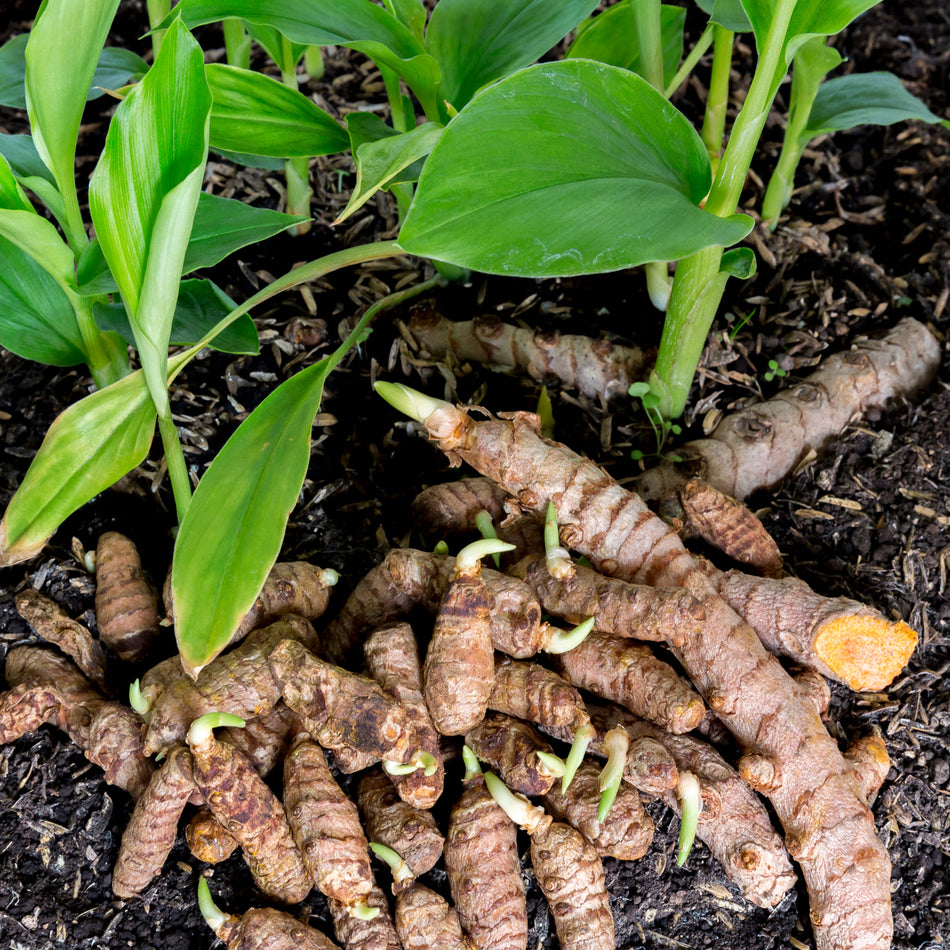HERBAL MEDICINE NATURE'S HEALING POWER
Herbal medicine, also known as botanical medicine or phytotherapy, is the use of plants and plant-derived substances to prevent, treat, or manage health conditions. It is one of the oldest forms of healthcare, with a history dating back thousands of years across various cultures, including Traditional Chinese Medicine (TCM), Ayurveda, and Indigenous practices worldwide.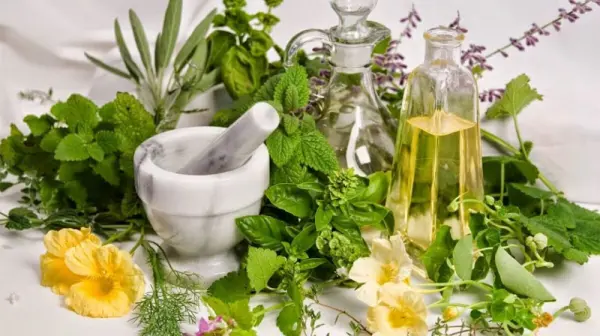

Herbal medicine offers a natural and holistic approach to health, rooted in centuries of tradition. While its benefits are numerous, it is crucial to use herbal remedies responsibly and consult a qualified practitioner, especially when combining them with conventional treatments. By embracing herbal medicine alongside modern healthcare, individuals can achieve a balanced approach to wellness.
WHAT IS HERBAL MEDICINE?
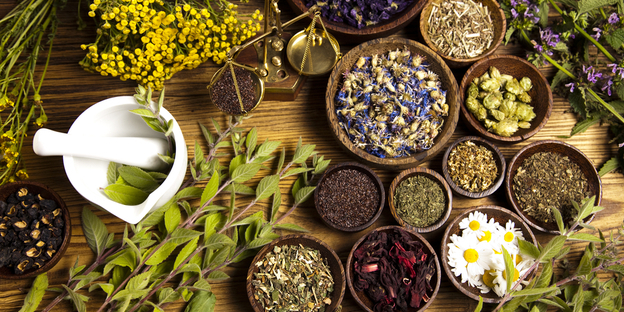 Herbal medicine involves the use of various plant parts such as roots, leaves, bark, seeds, and flowers. These components are rich in bioactive compounds like alkaloids, flavonoids, and tannins, which contribute to their therapeutic properties. Herbal remedies can be prepared as teas, tinctures, capsules, ointments, or extracts, depending on the intended use.
Herbal medicine involves the use of various plant parts such as roots, leaves, bark, seeds, and flowers. These components are rich in bioactive compounds like alkaloids, flavonoids, and tannins, which contribute to their therapeutic properties. Herbal remedies can be prepared as teas, tinctures, capsules, ointments, or extracts, depending on the intended use.POPULAR HERBS AND THEIR USES
ECHINACEA
Boosts the immune system and helps fight colds and infections.
Echinacea is a flowering plant native to North America and has been used for centuries by Indigenous peoples for its healing properties. It belongs to the daisy family (Asteraceae) and is commonly known as purple coneflower. The plant’s roots, leaves, and flowers are all utilized in herbal medicine.
Active Compounds
Echinacea contains a variety of bioactive compounds, including:
Alkamides: Contribute to its anti-inflammatory and immune-modulating effects.
Caffeic Acid Derivatives: Powerful antioxidants that help combat oxidative stress.
Polysaccharides: Enhance immune system activity.
Health Benefits Of Echinacea
Immune System Support
Echinacea is best known for its ability to strengthen the immune system. It stimulates the production of white blood cells, which help fight off infections. It’s commonly used to reduce the severity and duration of colds, flu, and other respiratory infections.
Anti-Inflammatory Properties
The herb has been found to alleviate inflammation, making it useful for conditions like sore throats, sinusitis, and other inflammatory responses in the body.
Wound Healing
Echinacea can be applied topically in creams or ointments to promote the healing of minor wounds, cuts, and burns.
Potential Role In Mental Health
Recent studies suggest that Echinacea may help reduce anxiety due to its ability to regulate neurotransmitters.
Forms Of Echinacea
Tinctures: Alcohol-based extracts for quick absorption.
Capsules/Tablets: Convenient for standardized dosing.
Teas: A soothing way to enjoy Echinacea, often combined with honey and lemon for colds.
Topical Creams: Used for skin conditions and wound care.
How To Use Echinacea
For Immune support, Echinacea is often taken at the first sign of illness.
Dosage varies based on the form; follow product instructions or consult a healthcare provider.
Precautions
Allergic Reactions: People allergic to daisies, ragweed, or marigolds may also react to Echinacea.
Autoimmune Disorders: It may overstimulate the immune system in conditions like lupus or rheumatoid arthritis.
Pregnancy And Breastfeeding: Consult a healthcare professional before use.
Echinacea is a powerful herb with a well-established role in boosting immunity and promoting overall health. Its versatility makes it a popular choice in both traditional and modern medicine. However, like any supplement, it should be used responsibly and under guidance to maximize benefits and avoid potential side effects.
TURMERIC
Contains curcumin, known for its anti-inflammatory and antioxidant properties. The Golden Spice of Health
INTRODUCTION TO TURMERIC
Turmeric (Curcuma longa) is a vibrant yellow spice derived from the root of a plant in the ginger family. Native to Southeast Asia and a staple in Indian cuisine, it has been revered for centuries in Ayurvedic and Traditional Chinese Medicine for its numerous health benefits.
Active Component: Curcumin
The primary bioactive compound in turmeric is curcumin, which is responsible for its powerful medicinal properties. Curcumin is known for its:
Anti-inflammatory effects.
Antioxidant properties.
Potential to modulate several molecular pathways involved in chronic diseases.
Health Benefits of Turmeric
Anti-Inflammatory Power
Turmeric is widely recognized for its ability to combat inflammation. Chronic inflammation is linked to conditions such as arthritis, heart disease, and diabetes. Curcumin inhibits inflammatory molecules like cytokines and enzymes, making it effective in managing inflammatory diseases like osteoarthritis and rheumatoid arthritis.
Antioxidant Properties
Curcumin neutralizes harmful free radicals and boosts the body’s antioxidant enzymes, protecting cells from damage and reducing the risk of chronic diseases.
Improved Brain Health
Research suggests that curcumin may boost levels of Brain-Derived Neurotrophic Factor (BDNF), a protein essential for learning and memory. This makes turmeric a promising tool for preventing neurodegenerative diseases like Alzheimer’s.
4. Heart Health
Curcumin improves endothelial function (lining of blood vessels), reduces inflammation, and lowers cholesterol levels, supporting cardiovascular health.
5. Digestive Aid
Turmeric stimulates bile production, aiding in fat digestion and reducing symptoms of bloating and indigestion. It’s also beneficial for managing conditions like Irritable Bowel Syndrome (IBS).
6. Cancer Prevention and Support
Studies indicate that curcumin can inhibit the growth of cancer cells, reduce angiogenesis (formation of new blood vessels in tumors), and even prevent metastasis.
7. Skin Health
Applied topically, turmeric can help reduce acne, lighten scars, and manage conditions like eczema and psoriasis due to its anti-inflammatory and antibacterial properties.
Ways to Use Turmeric
Golden Milk (Turmeric Latte): Mix turmeric with milk (or plant-based alternatives), honey, and spices like ginger and cinnamon for a soothing drink.
Turmeric Tea: Brew turmeric powder with water, black pepper, and lemon for a refreshing infusion.
Capsules/Tablets: Standardized curcumin supplements offer a concentrated dose.
Cooking: Add turmeric to curries, soups, smoothies, or rice dishes for flavor and health benefits.
Enhancing Absorption
Curcumin is poorly absorbed on its own. Combining turmeric with black pepper, which contains piperine, can enhance absorption by up to 2,000%. Consuming turmeric with healthy fats also improves its bioavailability.
Precautions
Stomach Sensitivity: High doses may cause gastrointestinal discomfort.
Blood Thinning: Curcumin may act as a blood thinner; consult a healthcare provider if you’re on anticoagulant medications.
Gallbladder Issues: Avoid turmeric if you have gallstones or bile duct obstruction.
Turmeric is a remarkable spice with a rich history and extensive health benefits. From reducing inflammation to supporting brain and heart health, it has earned its reputation as a natural powerhouse. Incorporating turmeric into your daily routine, whether through cooking or supplements, can contribute to long-term wellness.
GINSENG
Ginseng: Enhances energy, reduces stress, and improves cognitive function.The Root of Vitality
Introduction To Ginseng
Ginseng is one of the most widely used and valued herbs in traditional medicine, particularly in Asia and North America. Derived from the roots of the genus Panax, the two most commonly studied types are Asian Ginseng (Panax ginseng) and American Ginseng (Panax quinquefolius). Known as an adaptogen, ginseng helps the body adapt to stress and improve overall well-being.
Ginseng is a versatile and powerful herb that offers numerous health benefits, from boosting energy and immunity to enhancing mental clarity. By choosing the right type of ginseng and using it responsibly, individuals can tap into this ancient remedy for improved vitality and well-being
Active Compounds
The primary active components of ginseng are ginsenosides (or panaxosides). These compounds have numerous medicinal properties, including:
Anti-inflammatory effects.
Immune system modulation.
Cognitive enhancement.
Health Benefits Of Ginseng
Boosts Energy Levels
Ginseng is often used to combat fatigue and enhance physical performance. It helps improve energy production at a cellular level, making it a popular choice for athletes and those with chronic fatigue.
Supports Immune Function
Ginseng strengthens the immune system by increasing the production of immune cells, such as natural killer cells. This makes it effective in reducing the risk of infections and aiding recovery from illnesses.
Enhances Cognitive Function
Studies suggest ginseng improves memory, attention, and overall mental clarity. It may also help reduce the risk of neurodegenerative diseases like Alzheimer's.
Reduces Stress And Promotes Relaxation
As an adaptogen, ginseng helps the body regulate stress hormones like cortisol, improving resilience to physical and emotional stressors.
Improves Heart Health
Ginseng may help regulate blood pressure, reduce cholesterol levels, and improve circulation, thereby promoting cardiovascular health.
Manages Blood Sugar Levels
Ginseng has been shown to improve insulin sensitivity and regulate blood sugar, making it beneficial for individuals with diabetes or prediabetes.
Anti-Aging Properties
Ginseng's antioxidant properties help reduce cellular damage, slow aging, and improve skin health, making it a popular ingredient in cosmetics.
Types Of Ginseng
Asian Ginseng (Panax ginseng): Known for its stimulating and energizing effects, often used to enhance stamina and focus.
American Ginseng (Panax quinquefolius): Milder and more calming, often used to reduce stress and promote relaxation.
Siberian Ginseng (Eleutherococcus senticosus): Though not a true ginseng, it is also an adaptogen with similar health benefits.
Forms And Uses
Capsules And Tablets: Convenient and standardized dosing.
Powder: Added to smoothies, teas, or soups.
Bisabolol Tea: A popular and soothing way to enjoy its benefits.
Extracts And Tinctures: Potent liquid forms for quick absorption.
Precautions And Side Effects
Insomnia: Ginseng's stimulating effects may disrupt sleep in some individuals.
Interactions: It may interact with medications like blood thinners, antidepressants, or diabetes medications.
Hormonal Effects: Avoid use if you have hormone-sensitive conditions without consulting a healthcare provider.
Pregnancy And Breastfeeding: Use should be avoided unless approved by a healthcare professional.
CHAMOMILE
Chamomile: Promotes relaxation, alleviates insomnia, and soothes digestive issues.Nature’s Calming Herb
Introduction To Chamomile
Chamomile (Matricaria chamomilla or Chamaemelum nobile) is a fragrant herb known for its gentle, calming effects. With a history rooted in traditional medicine, chamomile has been used for centuries to promote relaxation, improve sleep, and address various health concerns. Its delicate flowers are rich in bioactive compounds, making it a popular choice for teas, oils, and skincare products.Chamomile is a versatile and gentle herb celebrated for its calming, anti-inflammatory, and digestive benefits. Its mild nature makes it suitable for people of all ages, though it’s essential to use it responsibly. Whether enjoyed as a warm tea or used in skincare routines, chamomile remains a cherished natural remedy for relaxation and holistic well-being.
Active Compounds
Chamomile owes its therapeutic properties to several active components, including:
Apigenin: A flavonoid that promotes relaxation and sleep.
Bisabolol : An anti-inflammatory and antimicrobial agent.
Chamazulene : Known for its anti-inflammatory and antioxidant effects.
Health Benefits Of
Promotes Relaxation and Better Sleep
Chamomile is widely recognized for its ability to reduce stress and anxiety. Drinking chamomile tea before bed can improve sleep quality by calming the nervous system.
Supports Digestive Health
Chamomile helps alleviate digestive issues such as bloating, gas, and indigestion. It also soothes the stomach lining and may reduce symptoms of Irritable Bowel Syndrome (IBS).
Anti-Inflammatory Effects
Its anti-inflammatory properties make chamomile effective in managing conditions like arthritis, eczema, and other inflammatory disorders.
Skin Health
Chamomile is often used in skincare products for its ability to soothe irritation, reduce redness, and promote wound healing. It is beneficial for conditions like acne, eczema, and minor burns.
Immune System Support
Chamomile contains antioxidants that help strengthen the immune system and may reduce the severity of colds and respiratory infections.
Menstrual Relief
Chamomile's antispasmodic properties help relieve menstrual cramps and promote overall hormonal balance.
How To Use Chamomile
Chamomile Tea: A soothing infusion made by steeping dried flowers in hot water. Ideal for relaxation and digestion.
Essential Oil: Used in aromatherapy to reduce stress or added to bathwater for relaxation.
Topical Applications: Chamomile creams and ointments are used for skin healing.
Capsules/Tablets: Available as supplements for more concentrated effects.
Precautions
Allergic Reactions: Individuals allergic to ragweed, daisies, or marigolds may also be allergic to chamomile.
Medication Interactions: Chamomile may interact with blood thinners, sedatives, or anti-inflammatory drugs.
Pregnancy: Excessive use during pregnancy is not recommended without medical advice.
PEPPERMINT
Peppermint: Relieves digestive discomfort and reduces headaches. A Refreshing and Medicinal Herb
Introduction To Peppermint
Peppermint (Mentha × piperita) is a hybrid of watermint and spearmint, celebrated for its fresh aroma and numerous health benefits. Native to Europe and the Middle East, peppermint has been used for centuries in herbal medicine to address digestive issues, relieve pain, and promote relaxation. Its leaves and essential oil are packed with bioactive compounds that offer a range of therapeutic effects.Peppermint is a versatile herb with refreshing, therapeutic properties that promote digestive health, relieve pain, and enhance mental clarity. Whether used as a tea, essential oil, or topical remedy, peppermint offers a natural way to address common health concerns. Its widespread availability and ease of use make it a staple in herbal medicine.
Active Compounds
Peppermint’s health benefits come from its rich composition of bioactive compounds, including:
Menthol: Provides a cooling sensation and relieves pain.
Menthone: Contributes to its aromatic and therapeutic properties.
Flavonoids: Offer antioxidant and anti-inflammatory effects.
Health Benefits Of Peppermint
Improves Digestive Health
Peppermint is renowned for its ability to soothe the digestive system. It helps relieve bloating, gas, and indigestion by relaxing the muscles of the gastrointestinal tract. Peppermint oil capsules are particularly effective for managing Irritable Bowel Syndrome (IBS).
Relieves Headaches
Applying peppermint oil to the temples can provide quick relief from tension headaches and migraines, thanks to its cooling and pain-relieving properties.
Eases Respiratory Symptoms
Menthol in peppermint acts as a natural decongestant, making it effective for clearing nasal passages and relieving symptoms of colds, sinusitis, and asthma.
Reduces Pain and Inflammation
Peppermint has analgesic and anti-inflammatory effects, making it useful for soothing muscle pain, joint pain, and minor injuries.
Boosts Mental Clarity
The invigorating aroma of peppermint stimulates the senses, enhances focus, and reduces fatigue, making it a popular choice in aromatherapy.
Promotes Oral Health
Peppermint’s antimicrobial properties help fight bad breath and support gum health, which is why it is commonly used in toothpaste and mouthwash.
How To Use Peppermint
Peppermint Tea: Brewed from dried or fresh leaves, it’s a gentle remedy for digestive and respiratory issues.
Essential Oil: Used in aromatherapy, massage oils, or topical applications for pain relief and mental clarity.
Capsules: Enteric-coated peppermint oil capsules are effective for managing IBS.
Topical Application: Applied to the skin to relieve headaches, muscle pain, or itchiness.
Precautions
Allergic Reactions: Some individuals may experience skin irritation or allergic reactions when using peppermint products.
Digestive Sensitivity: High doses of peppermint oil may cause heartburn or irritation in individuals with GERD (gastroesophageal reflux disease).
Medication Interactions: Peppermint may interfere with certain medications, including antacids and blood pressure drugs.
Children and Pregnancy: Consult a healthcare provider before using peppermint products for young children or during pregnancy.
ALOE VERA
The Plant of Immortality ; Treats skin burns, wounds, and provides hydration.
Introduction To Aloe Vera
Aloe vera (Aloe barbadensis miller) is a succulent plant native to North Africa and widely cultivated worldwide for its medicinal properties. Known as the "plant of immortality" in ancient Egypt, aloe vera has been used for centuries to treat skin conditions, aid digestion, and boost overall health. Its thick, fleshy leaves contain a gel-like substance rich in nutrients and bioactive compounds.
Aloe vera is a versatile and powerful plant with applications in skincare, digestive health, and overall well-being. Its soothing and hydrating properties make it a staple in natural remedies and cosmetic products. With responsible use, aloe vera can be a valuable addition to any health and wellness routine.
Components in Aloe Vera
Aloe vera gel is packed with beneficial compounds, including:
Vitamins: A, C, E, and B12 for antioxidant and skin-repair properties.
Minerals: Calcium, magnesium, and zinc for overall health support.
Enzymes: Aid in breaking down sugars and fats for better digestion.
Polysaccharides: Enhance hydration and boost the immune system.
Aloin And Anthraquinones: Provide laxative effects and skin-soothing benefits.
HEALTH BENEFITS OF ALOE VERA
Skin Health And Healing
Aloe vera is a natural remedy for soothing burns, wounds, and skin irritations. Its gel hydrates the skin, reduces inflammation, and promotes faster healing. It’s widely used in treating sunburns, minor cuts, and acne.
Improves Digestive Health
Aloe vera juice helps soothe the digestive tract, reducing symptoms of heartburn, acid reflux, and irritable bowel syndrome (IBS). It also acts as a natural laxative for relieving constipation.
Boosts Immunity
The antioxidants and polysaccharides in aloe vera help strengthen the immune system by combating free radicals and supporting healthy cellular function.
Promotes Oral Health
Aloe vera’s antimicrobial properties make it effective in reducing plaque, preventing gum disease, and soothing mouth ulcers.
5. Supports Hair Health
Aloe vera can be used as a natural conditioner to nourish the scalp, reduce dandruff, and promote hair growth. Its hydrating properties make hair softer and shinier.
6. Anti-Inflammatory Properties
Whether applied topically or consumed, aloe vera helps reduce inflammation, making it beneficial for conditions like arthritis and skin diseases such as psoriasis and eczema.
7. Aids in Detoxification
Aloe vera juice supports the body’s natural detoxification process by promoting liver health and flushing out toxins.
How To Use Aloe Vera
Topical Gel: Extract the gel from the leaf and apply directly to the skin for burns, cuts, or dryness.
Aloe Vera Juice: Consume a small amount (1–2 tablespoons daily) for digestive health and detoxification.
Hair Mask: Apply aloe gel to the scalp and hair, leave it on for 30 minutes, then rinse.
Skincare: Use aloe vera-infused products for hydration and anti-aging benefits.
Precautions
Allergic Reactions: Some individuals may experience skin irritation or allergic reactions to aloe vera. Perform a patch test before use.
Laxative Effect: Excessive consumption of aloe vera juice can cause diarrhea or abdominal cramps.
Pregnancy And Breastfeeding: Avoid oral use without consulting a healthcare provider, as it may stimulate uterine contractions.
Medication Interactions: Aloe vera may interact with medications like diuretics and diabetes drugs.
BENEFITS OF HERBAL MEDICINES
Natural Healing: Uses plant-based compounds with minimal synthetic intervention.Herbal medicine is a vital aspect of natural healing, offering a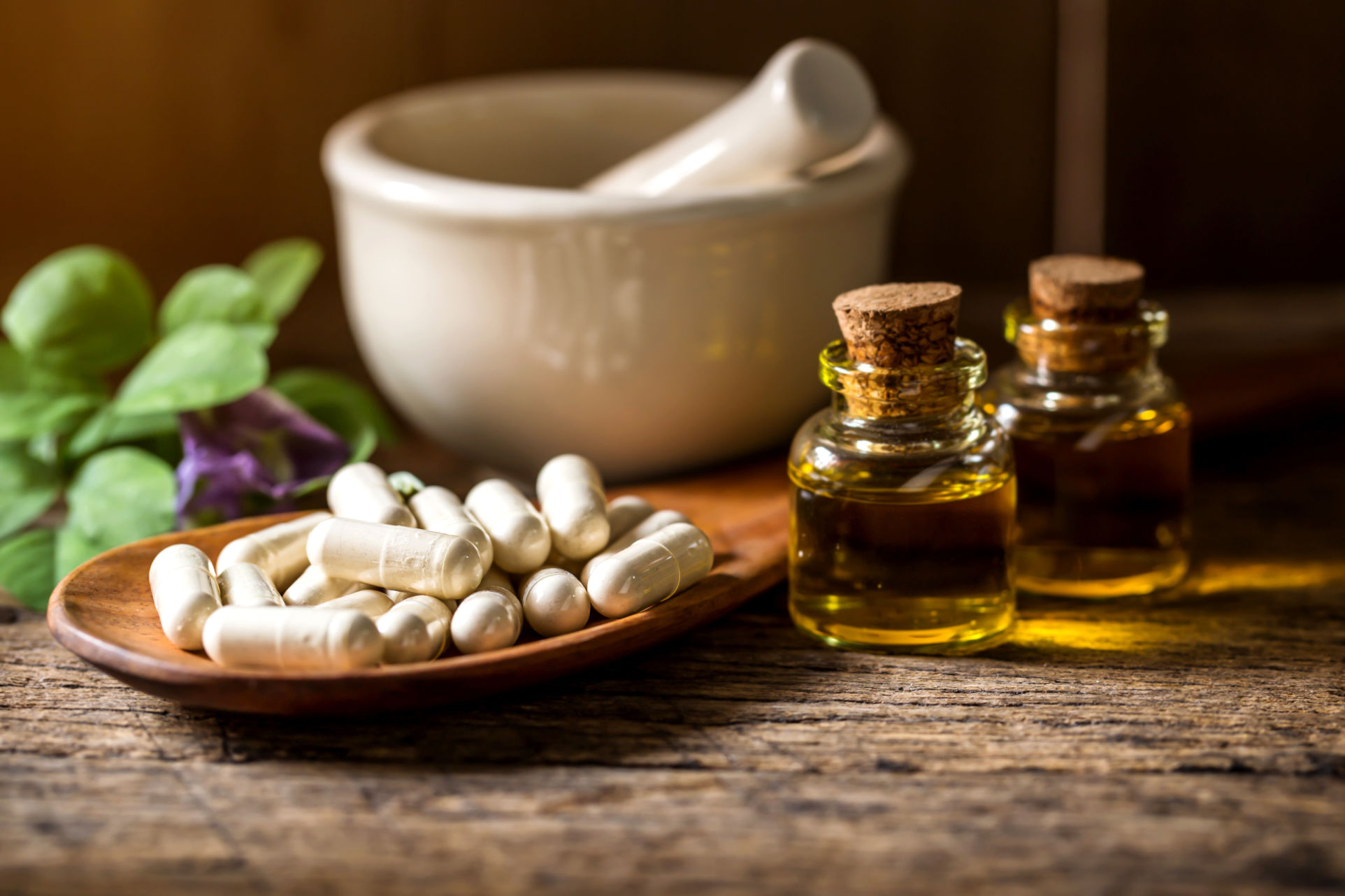 gentle yet powerful way to support health and well-being. By addressing the root causes of illness and enhancing the body’s natural healing processes, it empowers individuals to achieve balance and vitality. Whether used as teas, tinctures, or essential oils, herbs provide a versatile and holistic approach to health care.
gentle yet powerful way to support health and well-being. By addressing the root causes of illness and enhancing the body’s natural healing processes, it empowers individuals to achieve balance and vitality. Whether used as teas, tinctures, or essential oils, herbs provide a versatile and holistic approach to health care.
 gentle yet powerful way to support health and well-being. By addressing the root causes of illness and enhancing the body’s natural healing processes, it empowers individuals to achieve balance and vitality. Whether used as teas, tinctures, or essential oils, herbs provide a versatile and holistic approach to health care.
gentle yet powerful way to support health and well-being. By addressing the root causes of illness and enhancing the body’s natural healing processes, it empowers individuals to achieve balance and vitality. Whether used as teas, tinctures, or essential oils, herbs provide a versatile and holistic approach to health care.Fewer Side Effects: Often gentler on the body compared to synthetic drugs.
Herbal medicine has been used for thousands of years to support health and treat various ailments. One of its main advantages is that many herbs are considered gentler alternatives to synthetic medications, often resulting in fewer side effects when used appropriately. 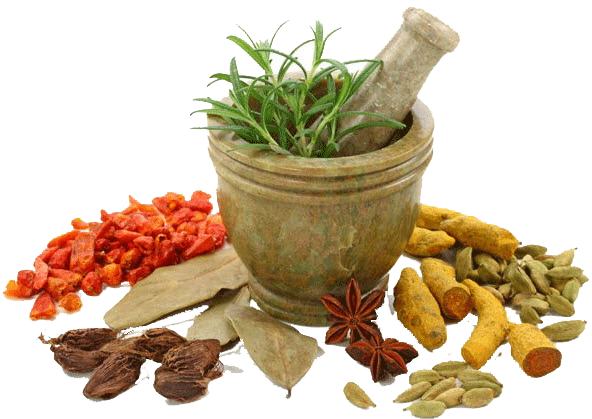 However, it’s essential to understand that while herbal remedies are generally safe, they may still interact with medications and may not be suitable for everyone.Herbal medicine offers a gentle and often safer alternative to synthetic drugs, with fewer side effects when used responsibly. Many herbs work in harmony with the body’s natural processes, promoting healing without the harsh reactions commonly associated with conventional medications. However, it’s crucial to use herbal remedies under the guidance of a healthcare provider, particularly if you are managing chronic conditions or taking other medications.
However, it’s essential to understand that while herbal remedies are generally safe, they may still interact with medications and may not be suitable for everyone.Herbal medicine offers a gentle and often safer alternative to synthetic drugs, with fewer side effects when used responsibly. Many herbs work in harmony with the body’s natural processes, promoting healing without the harsh reactions commonly associated with conventional medications. However, it’s crucial to use herbal remedies under the guidance of a healthcare provider, particularly if you are managing chronic conditions or taking other medications.
 However, it’s essential to understand that while herbal remedies are generally safe, they may still interact with medications and may not be suitable for everyone.Herbal medicine offers a gentle and often safer alternative to synthetic drugs, with fewer side effects when used responsibly. Many herbs work in harmony with the body’s natural processes, promoting healing without the harsh reactions commonly associated with conventional medications. However, it’s crucial to use herbal remedies under the guidance of a healthcare provider, particularly if you are managing chronic conditions or taking other medications.
However, it’s essential to understand that while herbal remedies are generally safe, they may still interact with medications and may not be suitable for everyone.Herbal medicine offers a gentle and often safer alternative to synthetic drugs, with fewer side effects when used responsibly. Many herbs work in harmony with the body’s natural processes, promoting healing without the harsh reactions commonly associated with conventional medications. However, it’s crucial to use herbal remedies under the guidance of a healthcare provider, particularly if you are managing chronic conditions or taking other medications.Accessible: Many herbs are affordable and widely available.Accessibility of Herbal Medicine. Herbal medicine has been a cornerstone of healthcare across cultures for thousands of years, offering natural alternatives to synthetic pharmaceuticals. Its accessibility makes it a valuable resource for people seeking safe, cost-effective, and holistic approaches to health and wellness. Today, herbal medicine remains accessible in various forms and locations, providing options for a wide range of individuals.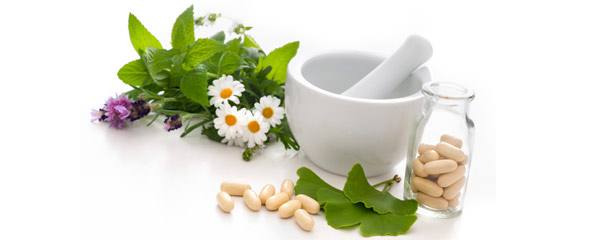 Herbal medicine is increasingly accessible, offering a cost-effective, natural, and holistic approach to health. However, challenges such as regulatory barriers, lack of research, and cultural disconnection can hinder its widespread adoption. By addressing these challenges through education, government support, and community engagement, herbal medicine can become more accessible, ensuring that individuals worldwide benefit from its healing properties.
Herbal medicine is increasingly accessible, offering a cost-effective, natural, and holistic approach to health. However, challenges such as regulatory barriers, lack of research, and cultural disconnection can hinder its widespread adoption. By addressing these challenges through education, government support, and community engagement, herbal medicine can become more accessible, ensuring that individuals worldwide benefit from its healing properties.
 Herbal medicine is increasingly accessible, offering a cost-effective, natural, and holistic approach to health. However, challenges such as regulatory barriers, lack of research, and cultural disconnection can hinder its widespread adoption. By addressing these challenges through education, government support, and community engagement, herbal medicine can become more accessible, ensuring that individuals worldwide benefit from its healing properties.
Herbal medicine is increasingly accessible, offering a cost-effective, natural, and holistic approach to health. However, challenges such as regulatory barriers, lack of research, and cultural disconnection can hinder its widespread adoption. By addressing these challenges through education, government support, and community engagement, herbal medicine can become more accessible, ensuring that individuals worldwide benefit from its healing properties.Supports Holistic Health: Addresses not only symptoms but also overall well-being.Holistic health focuses on the interconnectedness of the mind, body, and spirit, emphasizing the importance of balancing these elements to achieve overall well-being. It considers physical, emotional, mental, and spiritual aspects, recognizing that they all contribute to health.  Herbal medicine plays a significant role in supporting holistic health by addressing the root causes of imbalances rather than just treating symptoms.Herbal medicine plays a vital role in supporting holistic health by addressing the interconnected aspects of the mind, body, and spirit. By using natural remedies that promote balance, reduce inflammation, boost the immune system, and support mental clarity, herbal medicine helps foster long-term well-being. Integrating herbal remedies into your daily life can empower you to take control of your health and well-being in a holistic and sustainable way.
Herbal medicine plays a significant role in supporting holistic health by addressing the root causes of imbalances rather than just treating symptoms.Herbal medicine plays a vital role in supporting holistic health by addressing the interconnected aspects of the mind, body, and spirit. By using natural remedies that promote balance, reduce inflammation, boost the immune system, and support mental clarity, herbal medicine helps foster long-term well-being. Integrating herbal remedies into your daily life can empower you to take control of your health and well-being in a holistic and sustainable way.
 Herbal medicine plays a significant role in supporting holistic health by addressing the root causes of imbalances rather than just treating symptoms.Herbal medicine plays a vital role in supporting holistic health by addressing the interconnected aspects of the mind, body, and spirit. By using natural remedies that promote balance, reduce inflammation, boost the immune system, and support mental clarity, herbal medicine helps foster long-term well-being. Integrating herbal remedies into your daily life can empower you to take control of your health and well-being in a holistic and sustainable way.
Herbal medicine plays a significant role in supporting holistic health by addressing the root causes of imbalances rather than just treating symptoms.Herbal medicine plays a vital role in supporting holistic health by addressing the interconnected aspects of the mind, body, and spirit. By using natural remedies that promote balance, reduce inflammation, boost the immune system, and support mental clarity, herbal medicine helps foster long-term well-being. Integrating herbal remedies into your daily life can empower you to take control of your health and well-being in a holistic and sustainable way.Challenges And Risks
Lack Of Regulation: Quality and efficacy can vary due to inconsistent production standards.One of the key challenges facing the field of herbal medicine is the lack of consistent and comprehensive regulation. While herbal remedies have been used for centuries, they often exist in a relatively unregulated space compared to conventional pharmaceuticals. This can lead to concerns about safety, efficacy, quality control, and accessibility.The lack of regulation in herbal medicine creates challenges related to safety, quality, and efficacy. 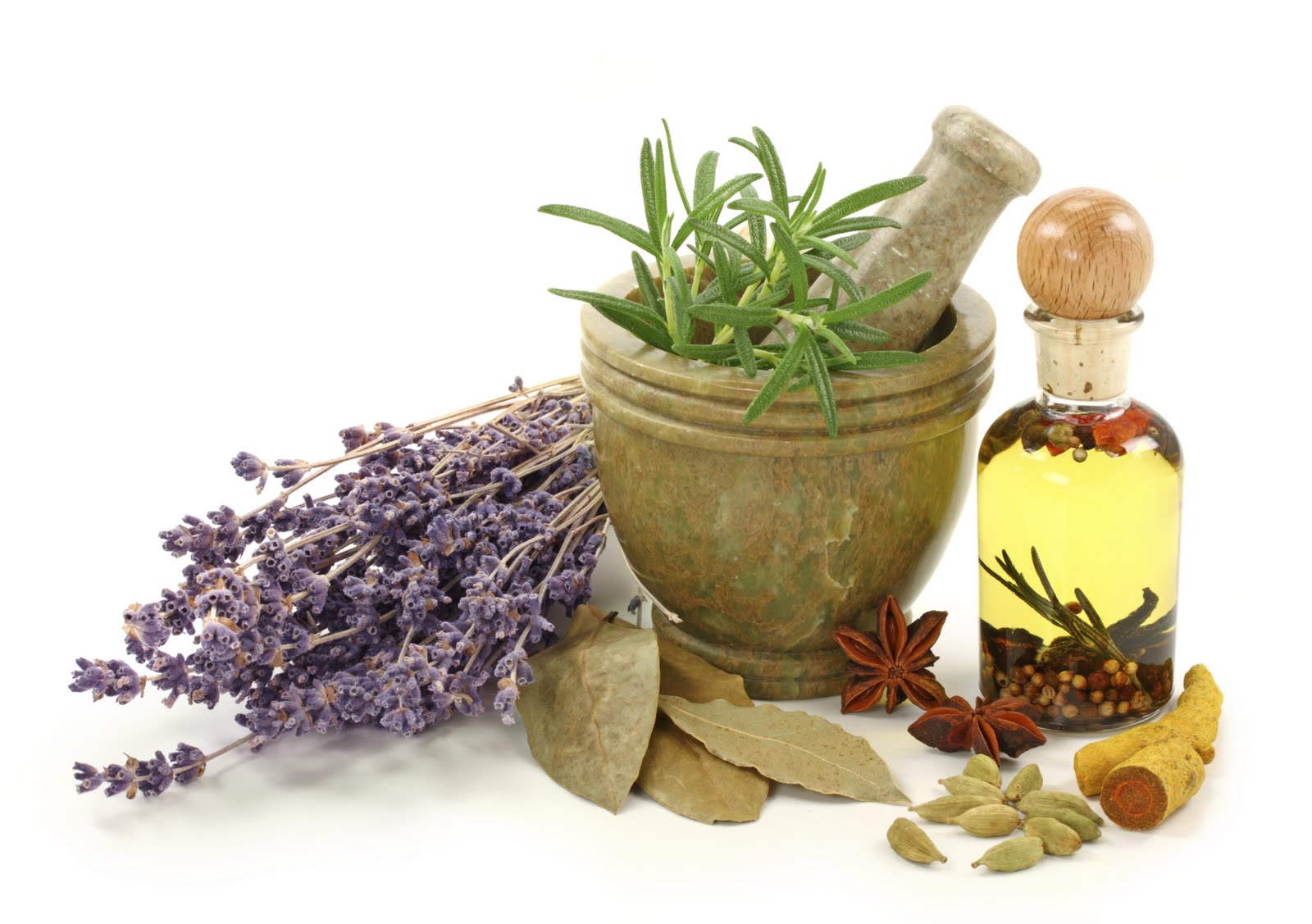 Without proper oversight, consumers may face risks from contaminated or poorly manufactured products and misleading claims. However, efforts from governments, industry groups, and educational initiatives aim to address these concerns, ensuring greater transparency, quality, and credibility for herbal medicine.Misuse of herbal medicine arises from a lack of knowledge, inaccurate information, and improper practices. Potential risks such as adverse health effects, ineffective treatment, and interactions with medications highlight the need for greater regulation, education, and responsible use. By ensuring proper guidance, storage, and understanding of herbal medicine, individuals can safely harness its benefits while minimizing risks
Without proper oversight, consumers may face risks from contaminated or poorly manufactured products and misleading claims. However, efforts from governments, industry groups, and educational initiatives aim to address these concerns, ensuring greater transparency, quality, and credibility for herbal medicine.Misuse of herbal medicine arises from a lack of knowledge, inaccurate information, and improper practices. Potential risks such as adverse health effects, ineffective treatment, and interactions with medications highlight the need for greater regulation, education, and responsible use. By ensuring proper guidance, storage, and understanding of herbal medicine, individuals can safely harness its benefits while minimizing risks
 Without proper oversight, consumers may face risks from contaminated or poorly manufactured products and misleading claims. However, efforts from governments, industry groups, and educational initiatives aim to address these concerns, ensuring greater transparency, quality, and credibility for herbal medicine.Misuse of herbal medicine arises from a lack of knowledge, inaccurate information, and improper practices. Potential risks such as adverse health effects, ineffective treatment, and interactions with medications highlight the need for greater regulation, education, and responsible use. By ensuring proper guidance, storage, and understanding of herbal medicine, individuals can safely harness its benefits while minimizing risks
Without proper oversight, consumers may face risks from contaminated or poorly manufactured products and misleading claims. However, efforts from governments, industry groups, and educational initiatives aim to address these concerns, ensuring greater transparency, quality, and credibility for herbal medicine.Misuse of herbal medicine arises from a lack of knowledge, inaccurate information, and improper practices. Potential risks such as adverse health effects, ineffective treatment, and interactions with medications highlight the need for greater regulation, education, and responsible use. By ensuring proper guidance, storage, and understanding of herbal medicine, individuals can safely harness its benefits while minimizing risksPotential Interactions: Herbal remedies can interact with prescription medications.Herbal medicine has been used for centuries to promote health and well-being. However, improper handling, cultivation, processing, or storage of herbal remedies can lead to potential infections and contamination risks. Infections from herbal products can occur due to exposure to harmful microorganisms like bacteria, fungi, or other pathogens. Understanding these risks is essential to ensure safety and efficacy.While herbal medicine has been used safely for centuries, potential infections from microbial contamination, improper processing, or storage present significant concerns. By ensuring strict quality control, proper sourcing, and safe handling practices, the risk of infections can be minimized. Consumers should prioritize purchasing from reputable sources and follow guidelines for proper storage and use to ensure the safety and efficacy of herbal remedies.
Misuse: Incorrect dosages or improper usage can lead to adverse effects.Herbal medicine, while often praised for its natural and holistic benefits, can be subject to misuse due to a lack of understanding, misinformation, or inadequate knowledge. Misuse occurs when herbal remedies are improperly used, leading to unintended health risks, ineffective outcomes, or even adverse effects. Addressing these issues is crucial to ensure safe and beneficial use of herbal medicine.
Modern Integration
Herbal medicine is increasingly being integrated into mainstream healthcare. Many pharmaceutical drugs are derived from plant compounds, such as aspirin (from willow bark) and morphine (from opium poppy). Ongoing research continues to validate traditional uses and discover new therapeutic applications.

.jpg?alt=media&token=2d5128a2-759a-4916-bb4a-8d88be67f697)

